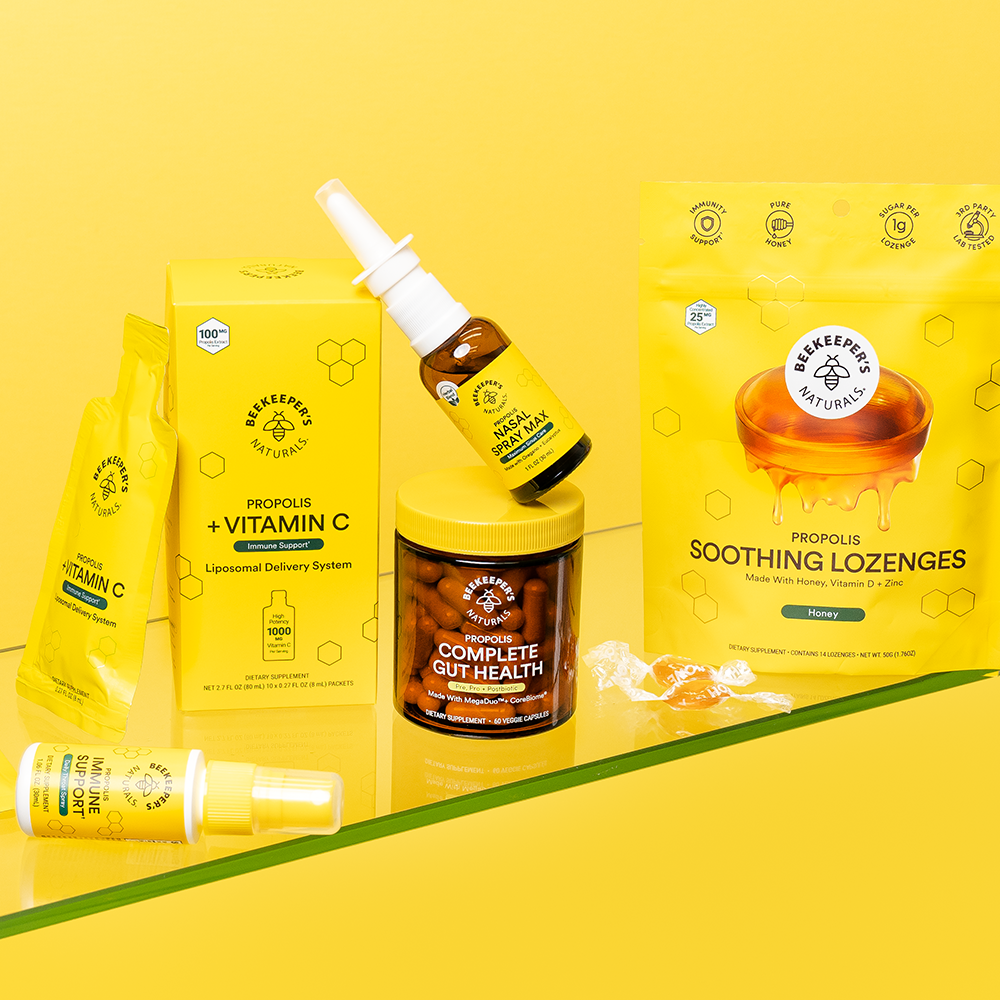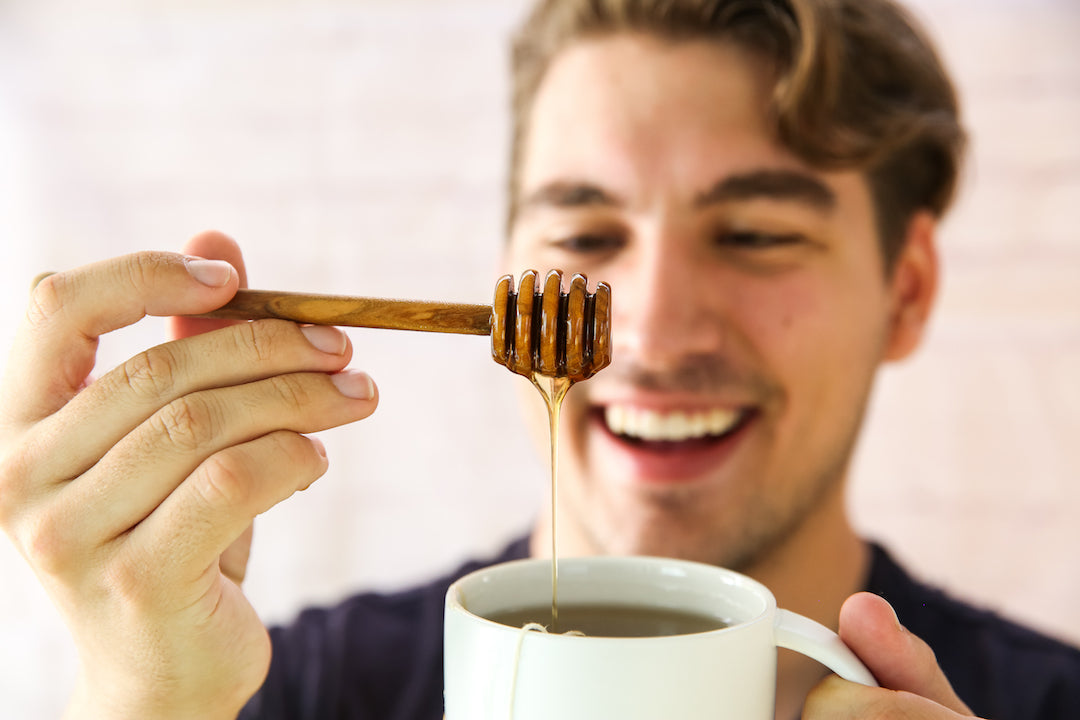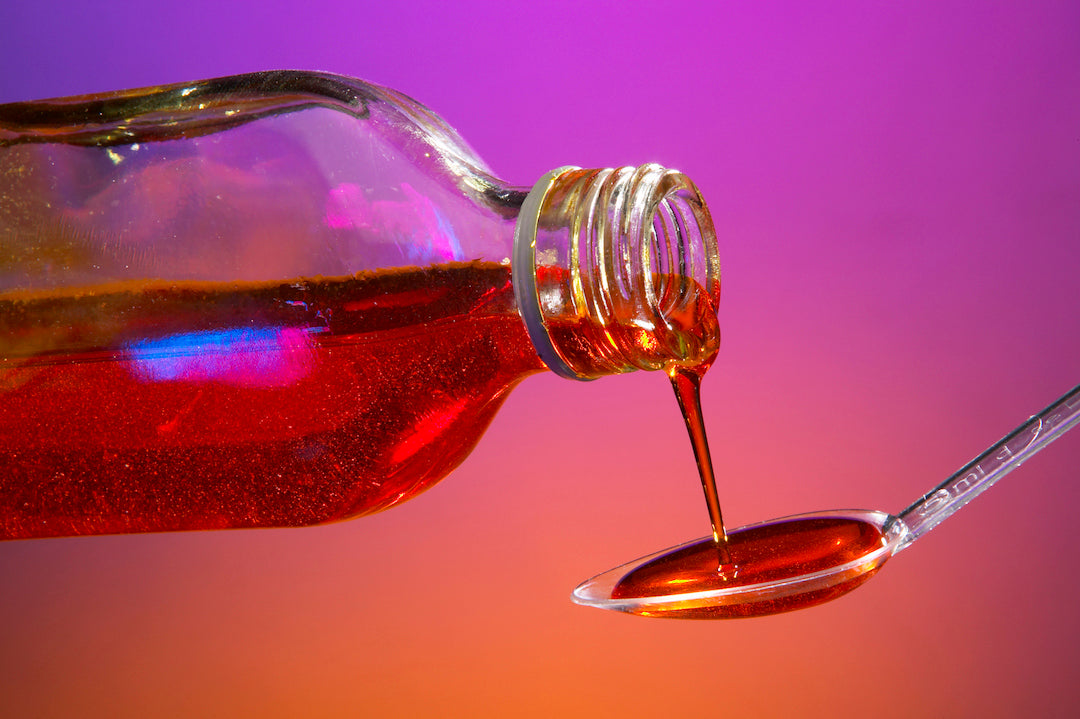Robin Jones is passionate about two things: beekeeping and culinary garden design—a pretty stellar combination if you ask us. But Robin didn’t always have her heart set on bees.
Robin had a “traditional” job out in California as a creative director working with big ad agencies. By all definitions of the word she was successful. But everything shifted when not one, but two serious car accidents left her physically and psychologically injured. Suffering from anxiety, panic attacks, and even hallucinations, she was diagnosed severe PTSD, which forced her to leave office life behind in search of a more healing calling. Luckily, she discovered her passion within the hive.
Now, Robin thrives at designing culinary gardens and apiaries for people and businesses, and she’s never regretted a moment of it. We had a chance to catch up with Robin to learn more about why she’s so hooked on bees and beekeeping, what bee product she put on her pizza in college, and the challenges of modern-day sustainability.
What’s your favorite thing about being a beekeeper?
The bees! I'm absolutely hooked on the girls and just love watching them. Teaching kids and adults about bees is a complete joy. It’s really fun to share fascinating facts about them and watch others become as wowed by them as I am.What did you feel was your biggest barrier to entry into beekeeping?
Keeping bees alive is the biggest "barrier to entry" for new beekeepers. My ignorance and lack of training allowed me to easily kill my first two hives. I seriously thought it would be as easy as keeping bugs in a jar. I never in a million years imagined the work and expense and heartbreak it would require. Beekeeping is not for sissies. After losing the second hive it was clear I either had to figure it out or quit, because I was failing living things.The devastating memorable quality of these tragedies is one of the gifts of beekeeping—you are less likely to make the same mistakes twice. I read several beekeeping books and watched videos, but found so much conflicting advice. Pretty frustrated, I tried to find mentors but they weren't that invested. They gave me "experimental" advice and that failed me pretty badly. I got lucky when my club introduced me to Randy Oliver (one of the world's leading bee researchers). Since I began studying under him and following science instead of opinion, I've been able to keep hives healthy and alive—which is no small task in a drought state with varroa mites.
How has working closely with bees changed your perception of nature or the world around us?
As a beekeeper you're so much more highly attuned to the weather and seasonal changes. Additionally, spending time observing nature (bees in a hive, bees on flowers, or just the wind on leaves or sun on the water...) is calming to the nervous system. This attunement is really what we were biologically designed for and it’s grounding and makes me feel connected to something bigger. It's a reward that we forget easily when submerged in our culture (tuned into a constant stream of screens/email/Netflix/pop culture etc.), and it's pretty magical.What is the most difficult thing about being a beekeeper?
The most difficult thing about being a beekeeper, hands-down has surprisingly not been drought, mites, or overwintering bees (although these should be). Instead, it's been:- Sticking to science. Not allowing myself to anthropomorphize bees. Not allowing my human emotions or ego to convince me the bees are doing something for some more romantic reasons.
- Trying to figure out what kind of beekeeper to be. I'm a naturalist and I was very opposed to feeding or treating bees, and felt nature should sort itself out. But I realized when I take bees out of nature and put them in a box, I've changed everything. Failing to treat and feed in my area leads to collapse, so I had to learn to do both responsibly. Just like parenting, it’s hard to figure out what is right individually, and what is the ethically responsible thing to do when you’re dealing with a living thing.

For those out there who fear the bees what words of advice do you have to clear up this misconception?
This is one of my favorite things to teach because most don’t understand that, just like dogs and cats, bees have species. So I ask them if they’d like to have an untrained wolf or a Pomeranian. Most choose the Pomeranian, and then I explain that there are risks with both. More docile species are less equipped to defend themselves unfortunately against pests/predators and disease.What is you favorite bee product and why?
Honey. That magical anti-inflammatory and antibacterial sweet stuff makes for amazing wound care, an incredible face mask, and a treat on a cheese plate, over ricotta with berries, or as I learned in college—on pizza!What is one piece of advice you would give your 20 year old self?
You should keep bees and go be a gardener like your high school career test suggested – skip the corporate world altogether, it’s lame.
What sustainable practices do you incorporate into your beekeeping?
Sustainability for me means supporting the health of nature and our environment—doing what’s possible to maintain an ecosystem’s natural health and cycles with seasonality. This means your environment and life surrounding the bees’ ecosystem must be organic, and only organic methods can be used. Some balance of how much one interferes needs to be kept.
Randy Oliver says, “Drought is the force that separates bees and beekeepers.” So what sustainability is in Southern California shifts drastically. The goal of helping the bees build their population to peak with the height of nectar and pollen flows is beyond difficult when you get little to no rain. I am sad to say that I feel the words, “sustainable beekeeping” are an oxymoron in Southern California. We sustain the bees. So how do I try to be as least invasive in the bees’ ecosystem and support the bees’ health and growth while still invading?
- I grow my own organic food and loads of flowers. (My big-picture goal of designing culinary gardens for chefs is to influence our food system. I believe chefs have the power. They are already are shifting our food choices and demand local, more varied crops grown with biodynamic practices.)
- I attempt to keep them alive by testing before treating. (You wouldn’t give your kid or dog medicine without knowing how sick they were, right?).
- I cautiously feed pollen and nectar, monitoring intake – knowing the bees won’t eat it if there’s another natural source, but over-feeding pollen can attract moths.
- I attempt to keep the bees healthy by interfering as little as possible - just enough to monitor health and respond or manage an issue before it can harm them.
Want to hear more from Robin? Follow her on Instagram @honeygirlgrows!





